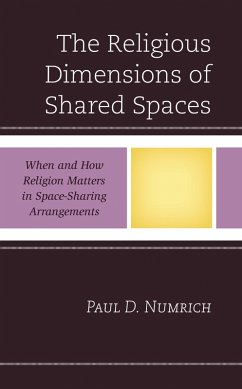Space sharing by groups and organizations is widespread in the United States, from commercial partnerships, to government and private sector joint use agreements, to the use of public facilities and commons, and more. Drawing upon a variety of historical examples and contemporary cases, The Religious Dimensions of Shared Spaces offers a focused and systematic analysis of space sharing involving religious groups or organizations. All space-sharing arrangements are similar in most respects, so what difference does it make when religious groups or organizations are involved? How do they invest meaning in the spaces they use and share, including "sacred space"? When and why do they enter into space-sharing arrangements with other parties, religious and/or secular? How do religious space sharers structure and maintain their arrangements, including handling tensions that arise? What can secular space sharers learn from their religious counterparts, and vice versa? The book also teases out when religion does not matter in space sharing, even when religious groups or organizations are involved. Case studies include internal congregational groups that negotiate the use of shared facilities, arrangements between congregations and external groups or organizations, multifaith partnerships, and shared spaces in secular venues.
Bitte wählen Sie Ihr Anliegen aus.
Rechnungen
Retourenschein anfordern
Bestellstatus
Storno









